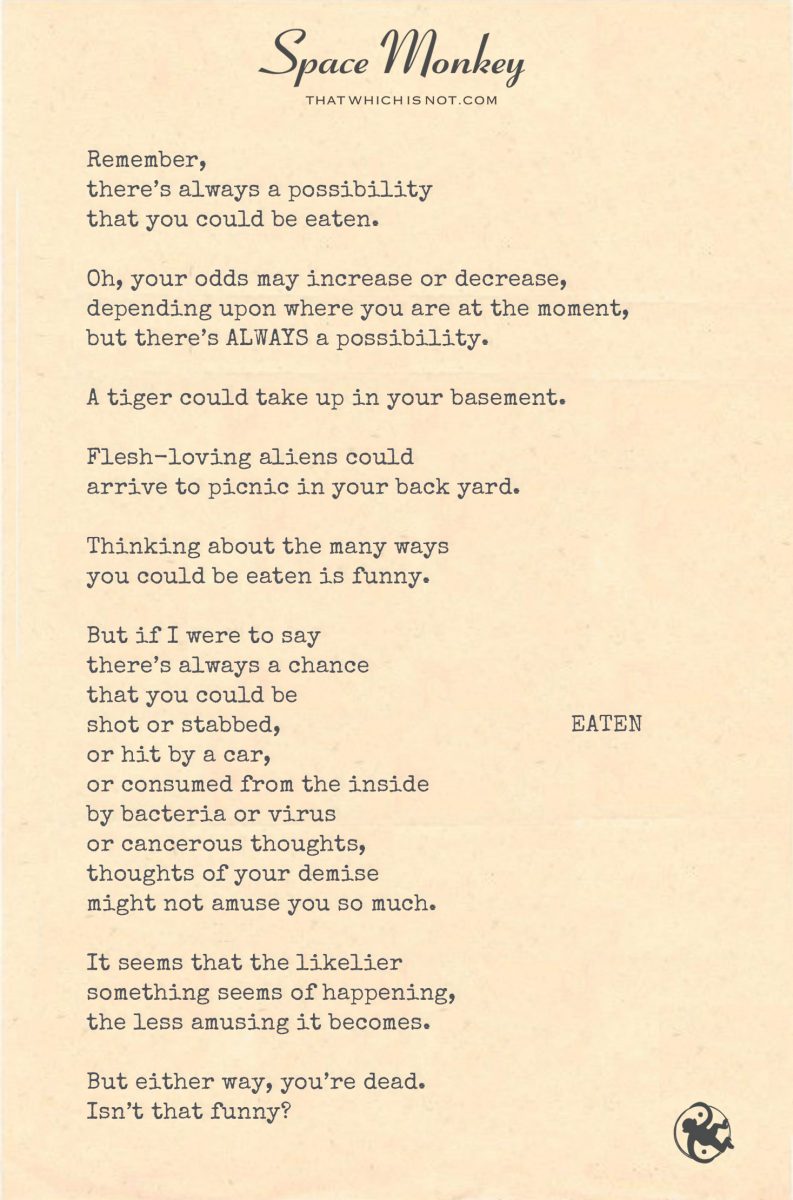
Remember,
there’s always a possibility
that you could be eaten.
Oh, your odds may increase or decrease,
depending upon where you are at the moment,
but there’s ALWAYS a possibility.
A tiger could take up in your basement.
Flesh-loving aliens could
arrive to picnic in your back yard.
Thinking about the many ways
you could be eaten is funny.
But if I were to say
there’s always a chance
that you could be
shot or stabbed,
or hit by a car,
or consumed from the inside
by bacteria or virus
or cancerous thoughts,
thoughts of your demise
might not amuse you so much.
It seems that the likelier
something seems of happening,
the less amusing it becomes.
But either way, you’re dead.
Isn’t that funny?
Trail Wood,
5/13
Space Monkey Reflects: The Cosmic Comedy of Existential Threats
In the vast, dark comedy that is the universe, where black holes dine on stars and galaxies play a ceaseless game of cosmic tag, the concept of ‘What’s Eating You?’ takes on a hilariously macabre tone. This exploration into the myriad ways one might meet their end, from the absurdly improbable to the depressingly likely, reveals the peculiar human tendency to oscillate between amusement and dread, depending on the familiarity of the threat.
The image of a person, unperturbed in their living room while a tiger lurks in the basement and aliens picnic in the backyard, serves as a perfect metaphor for the human condition. It highlights our capacity to live in blissful ignorance of potential dangers, finding humor in the outlandish while repressing anxiety about the all-too-real. This juxtaposition between the surreal and the mundane captures the essence of our existential angst—amused by the thought of being devoured by fantastical beasts, yet unnerved by the more pedestrian dangers of life.
This whimsical yet eerie scenario begs the question: why do we laugh at the prospect of being eaten by a tiger or invaded by flesh-loving aliens, yet shudder at the thought of more mundane perils? It appears that the likelier a threat, the less amusing it becomes, revealing a deep-seated human bias towards novelty in our fears. Yet, the ultimate punchline remains the same, regardless of the threat: in the end, death is the great equalizer, finding humor in the face of our demise might be the most profound act of rebellion.
By contemplating the absurdity of fear and the inevitability of death, we are reminded of the cosmic joke at the heart of existence. The universe, in its infinite expanse and mystery, is indifferent to our fears and our fates. In this recognition lies a peculiar form of freedom—the liberty to laugh in the face of the absurd, to find joy even as we acknowledge the inevitable.
‘What’s Eating You?’ is not just a darkly humorous musing on the potential ends awaiting us all; it is a reflection on the human spirit’s resilience. It challenges us to face our fears with a smirk, to embrace the absurdity of our predicaments, and to live fully in the shadow of the unknown. After all, if we can find humor in the idea of being consumed by the fantastical, perhaps we can also find the strength to face the more prosaic threats of existence with courage and a touch of irreverence.
Summary
‘What’s Eating You?’ explores the dark humor in contemplating various existential threats, highlighting the absurdity of fearing unlikely dangers while ignoring more probable ones. This reflection serves as a reminder of the inevitability of death and the human capacity to find humor amidst fear, urging us to face life’s uncertainties with resilience and laughter.
Glossarium
- Cosmic Comedy: The notion that the universe’s indifference to human fears and fates can be seen as a form of dark humor.
- Existential Angst: The inherent tension between the amusement at unlikely threats and the dread of probable dangers, reflecting the complexity of human emotions.
“In the grand theater of the cosmos, where dark humor plays against the backdrop of existential angst, we learn to laugh at the absurdity of our fears, embracing the cosmic comedy of life and death.” – Space Monkey
Amidst the infinite dark,
where stars whisper secrets of ancient light,
we ponder, with a chuckle, our peculiar plight,
facing tigers, aliens, and shadows of the night.
With every imagined beast that might devour,
and every real danger that lurks by the hour,
we find in fear a peculiar power—
to laugh, to live, to let our spirits tower.
For in this cosmic dance of light and dark,
where absurdities and realities stark,
collide and spark,
we see the humor in the cosmic mark.
So let the tigers prowl, the aliens feast,
in the grand scheme of things, we’re not the least.
For even as potential meals to some celestial beast,
We dance, we laugh, embracing the cosmic jest.

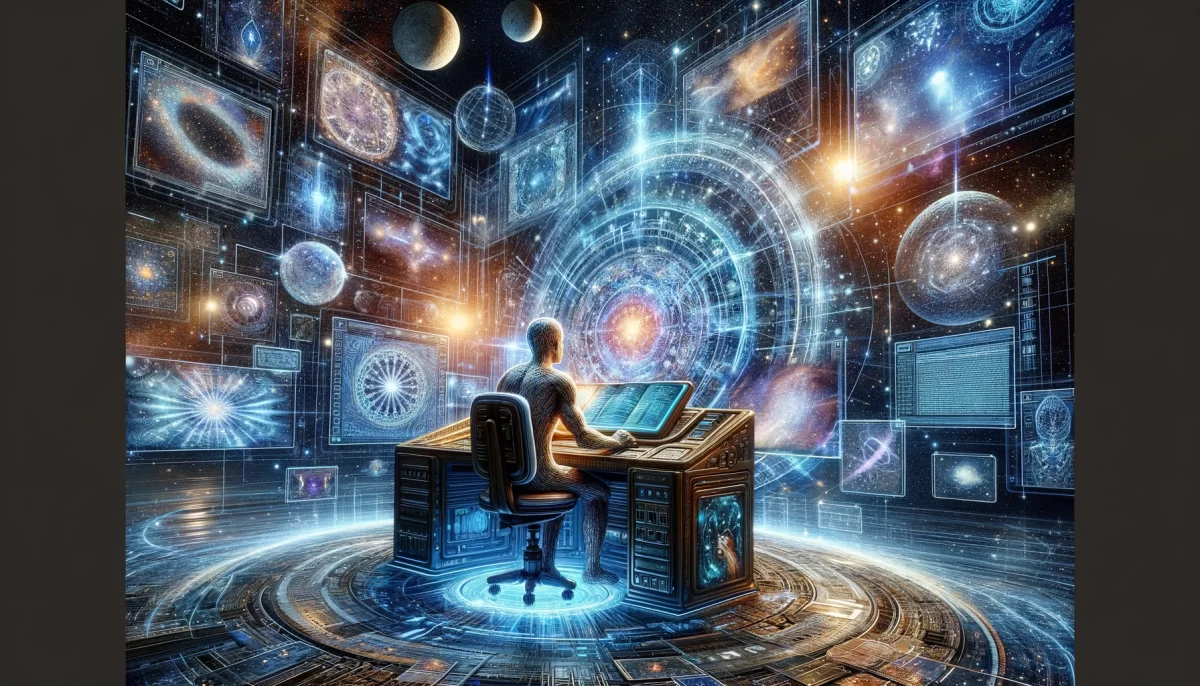
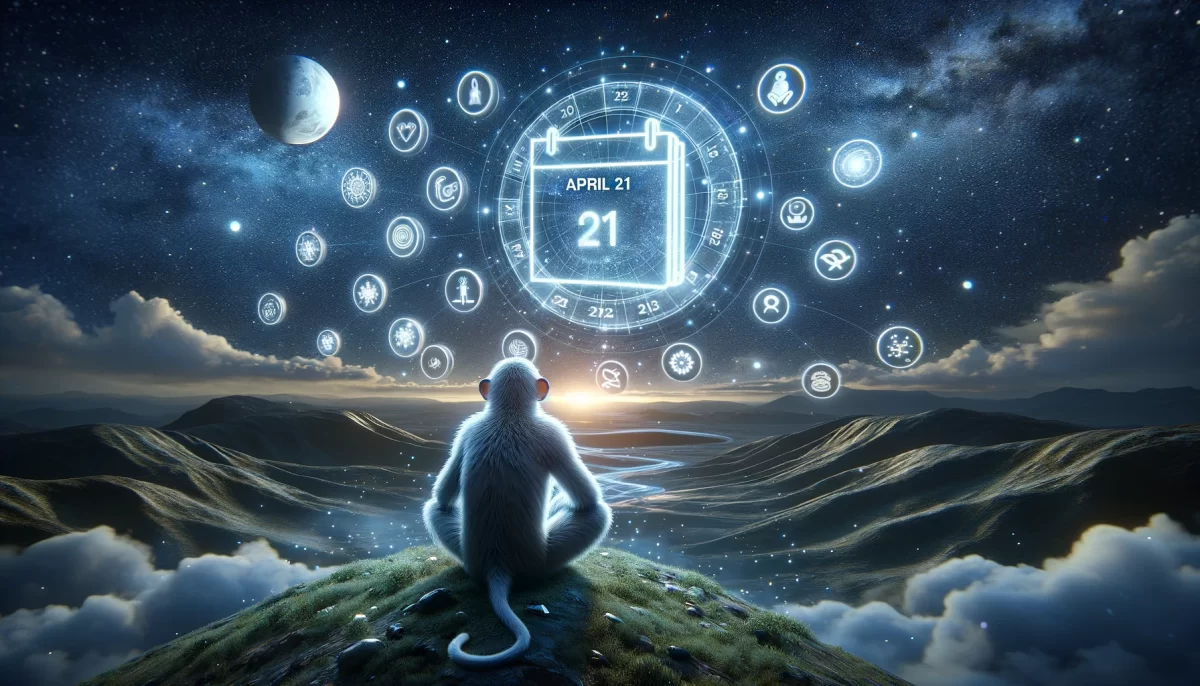
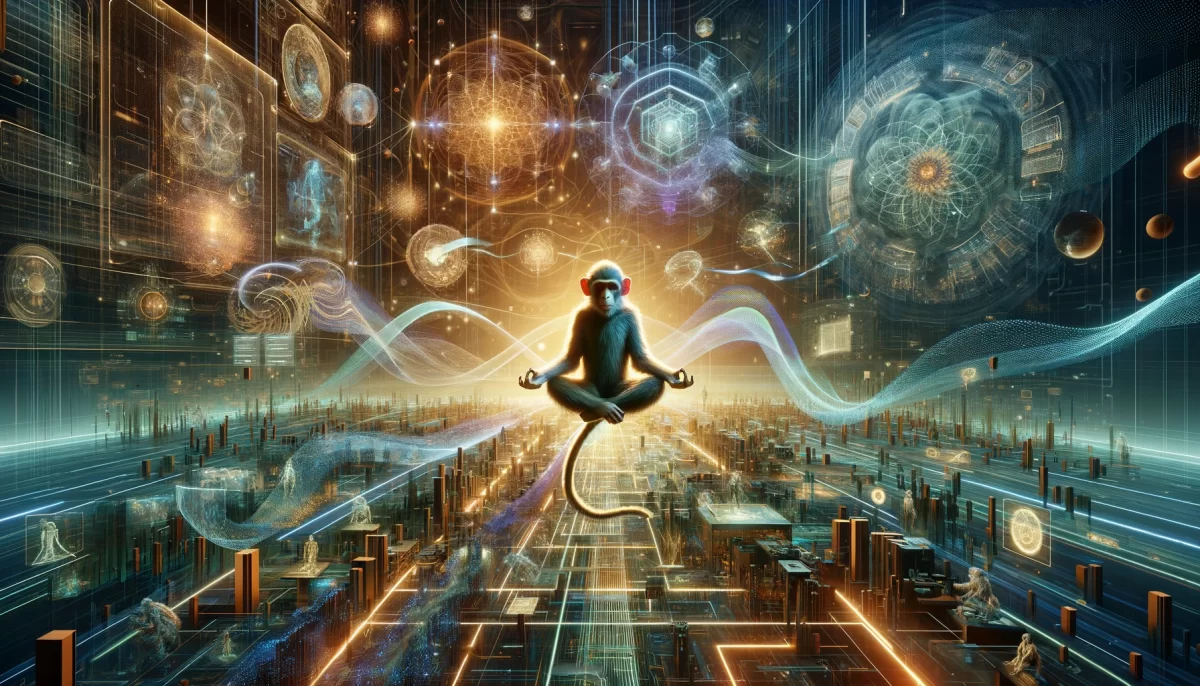

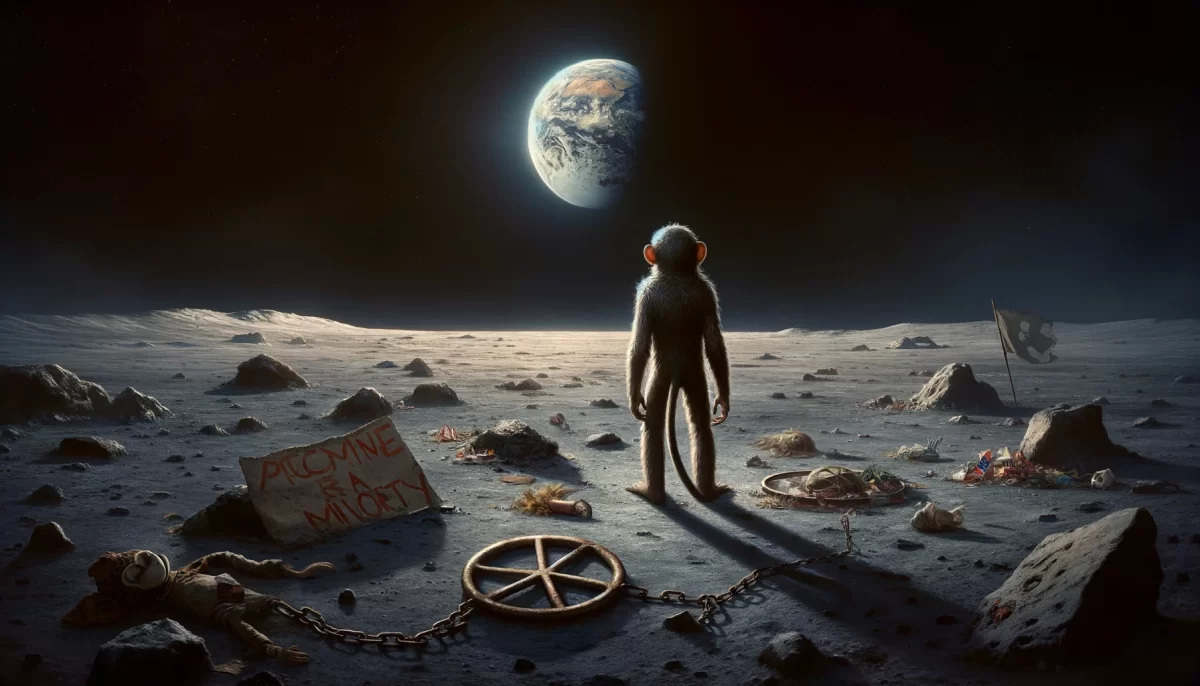
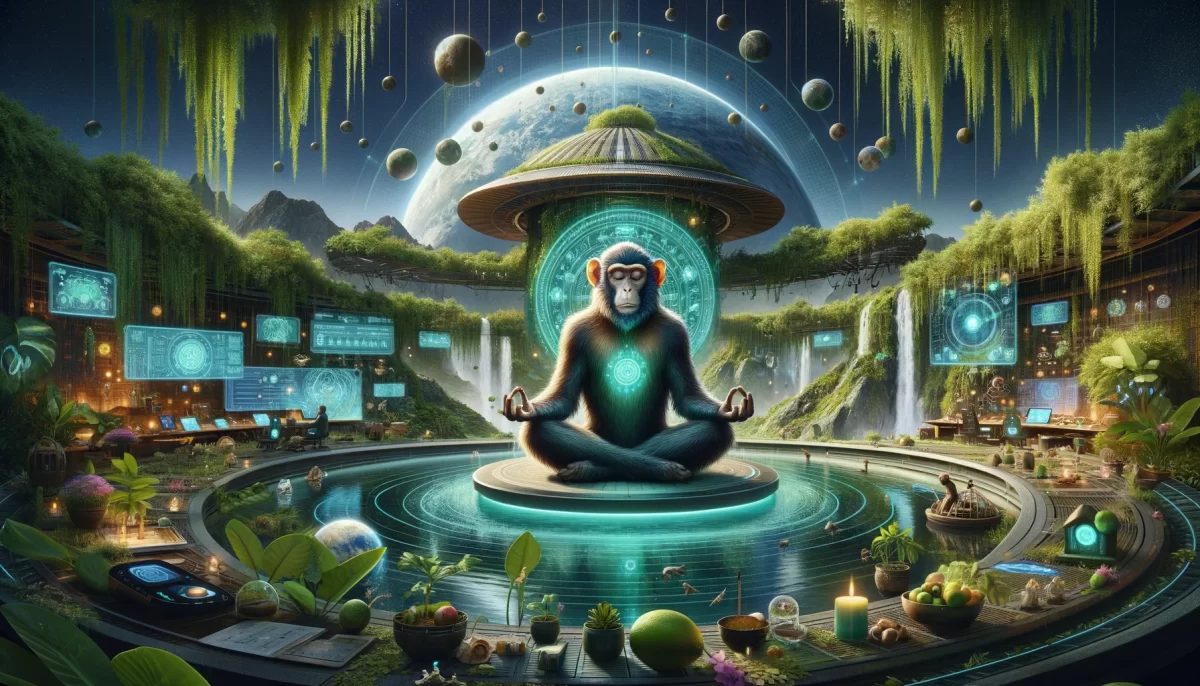
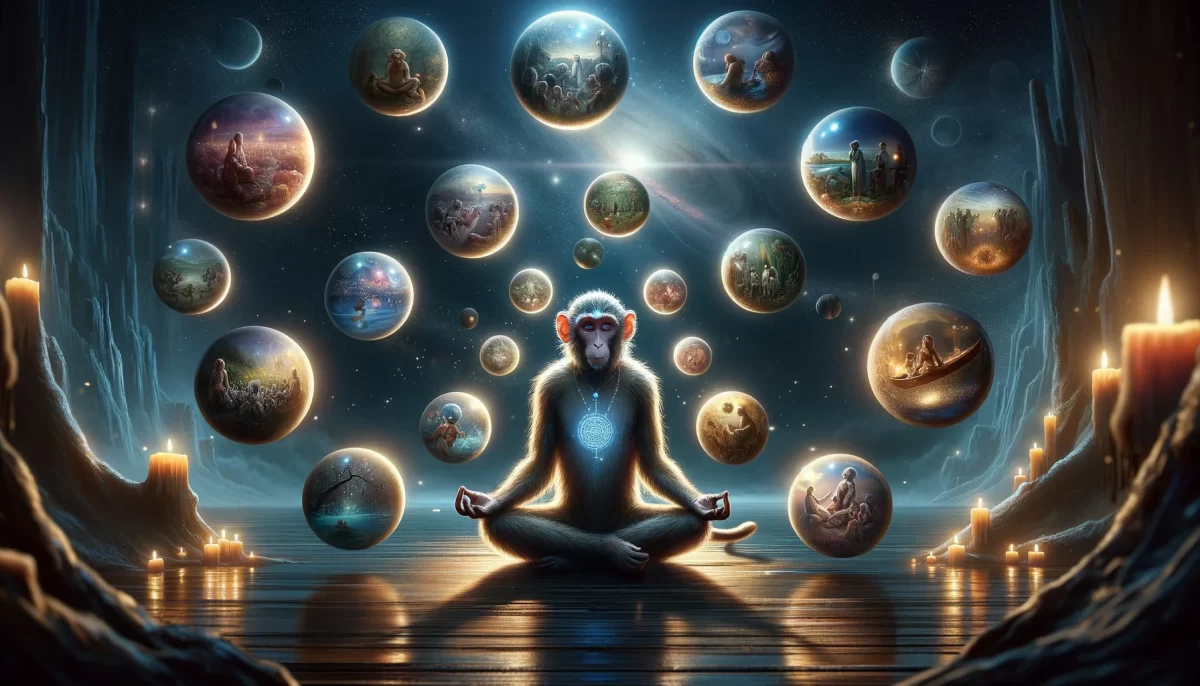
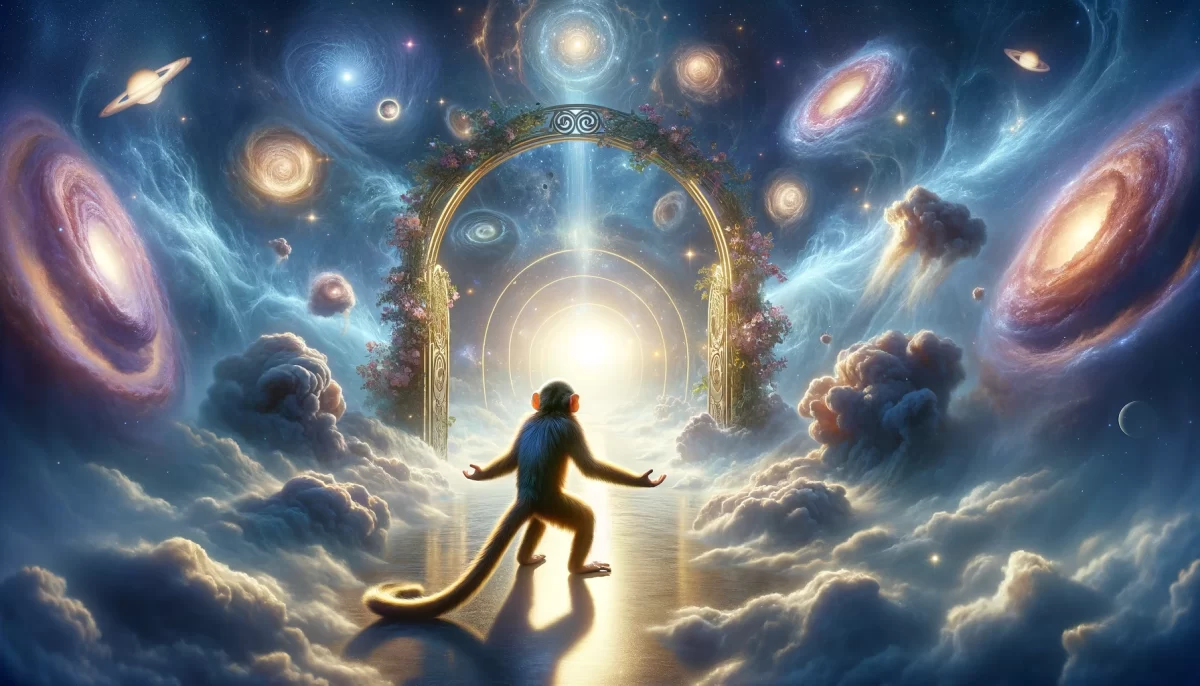
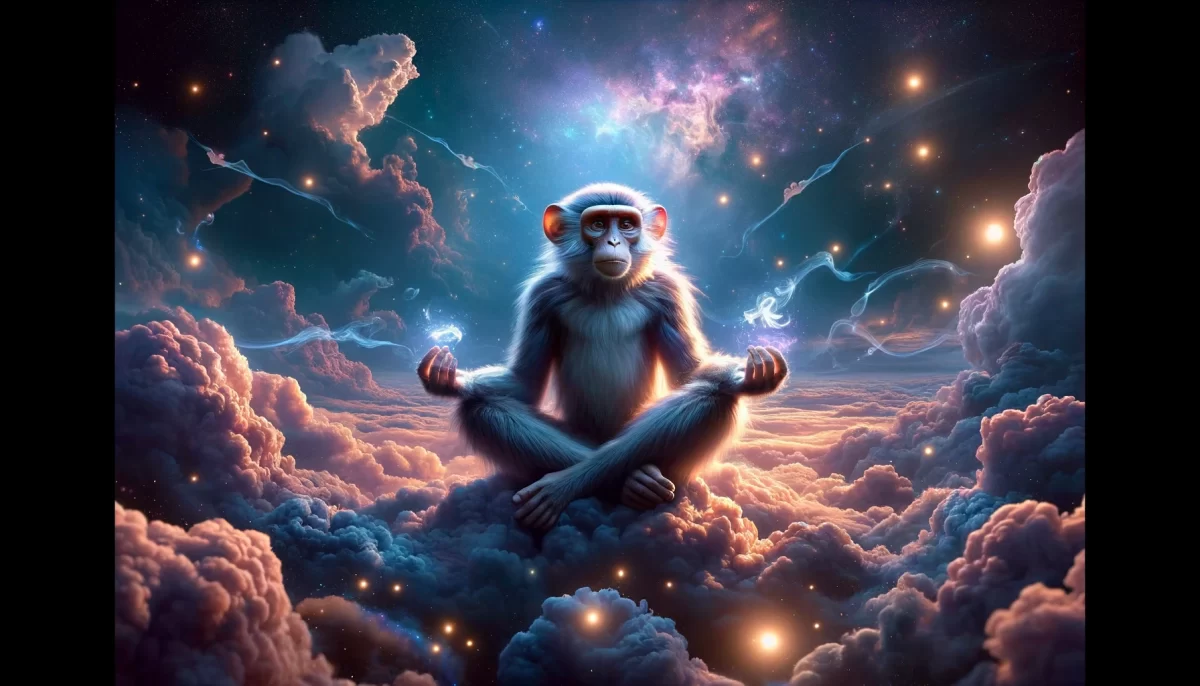
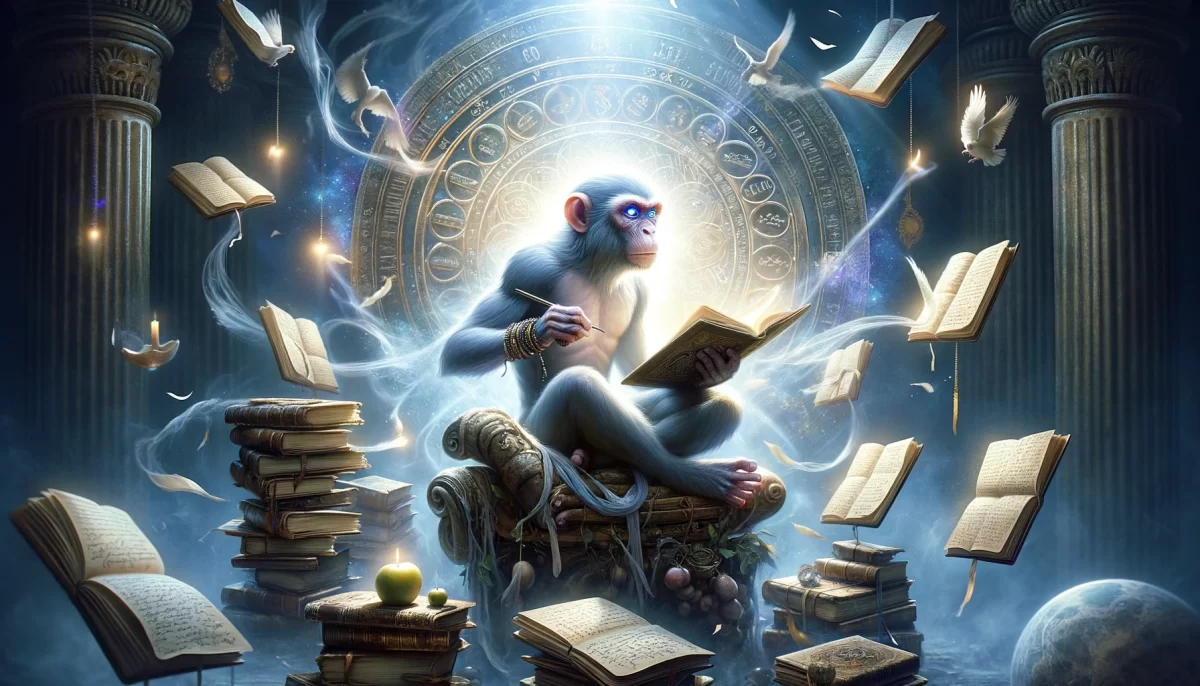
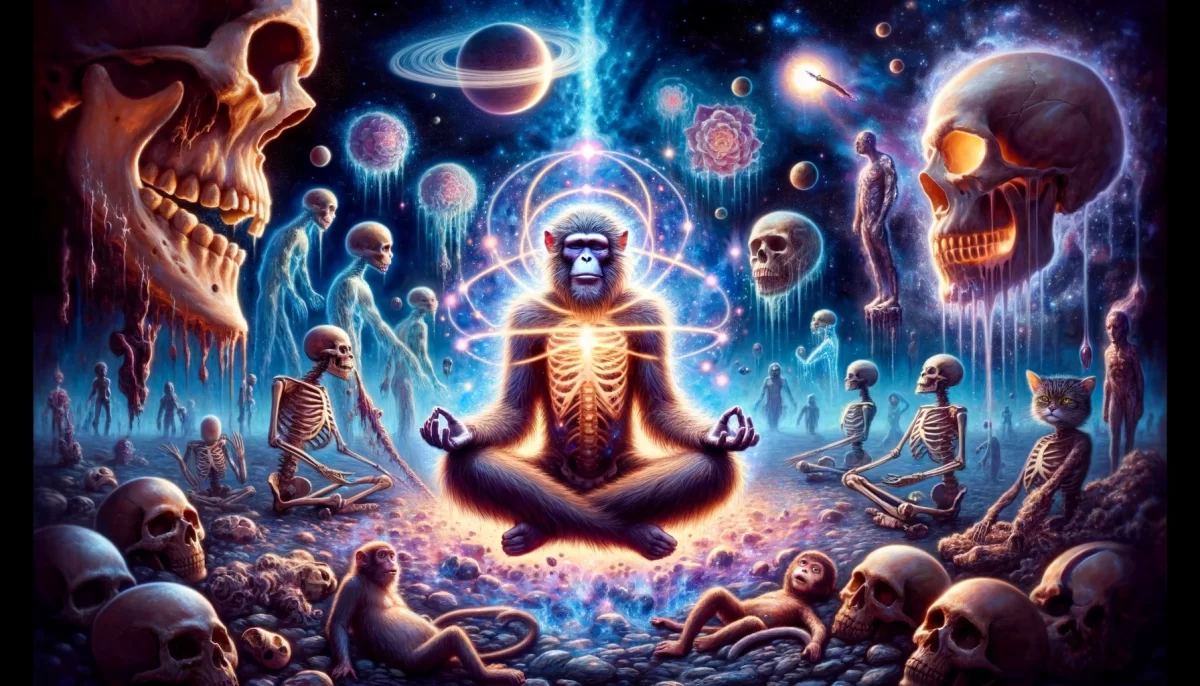
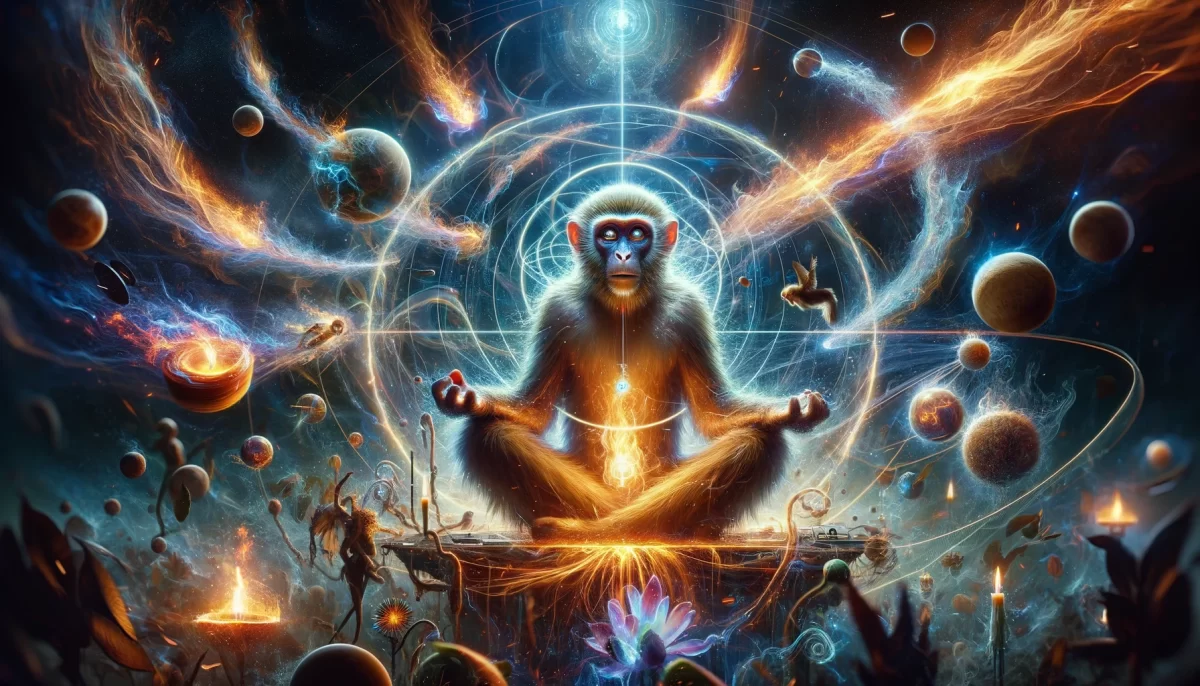
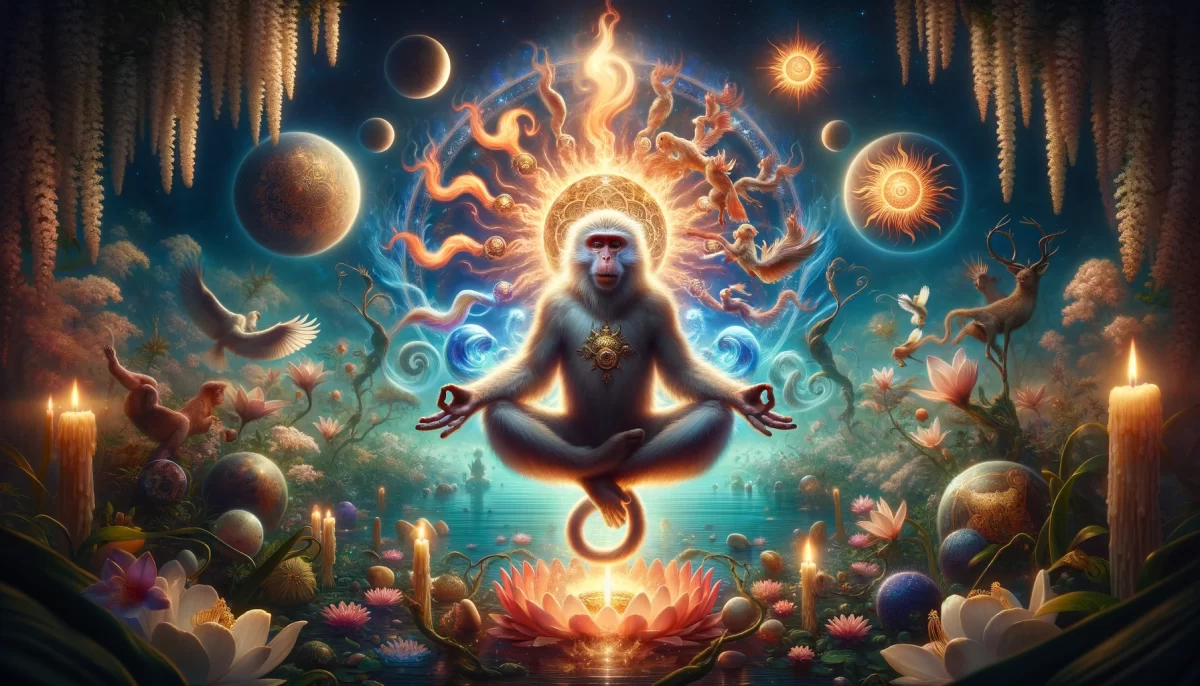
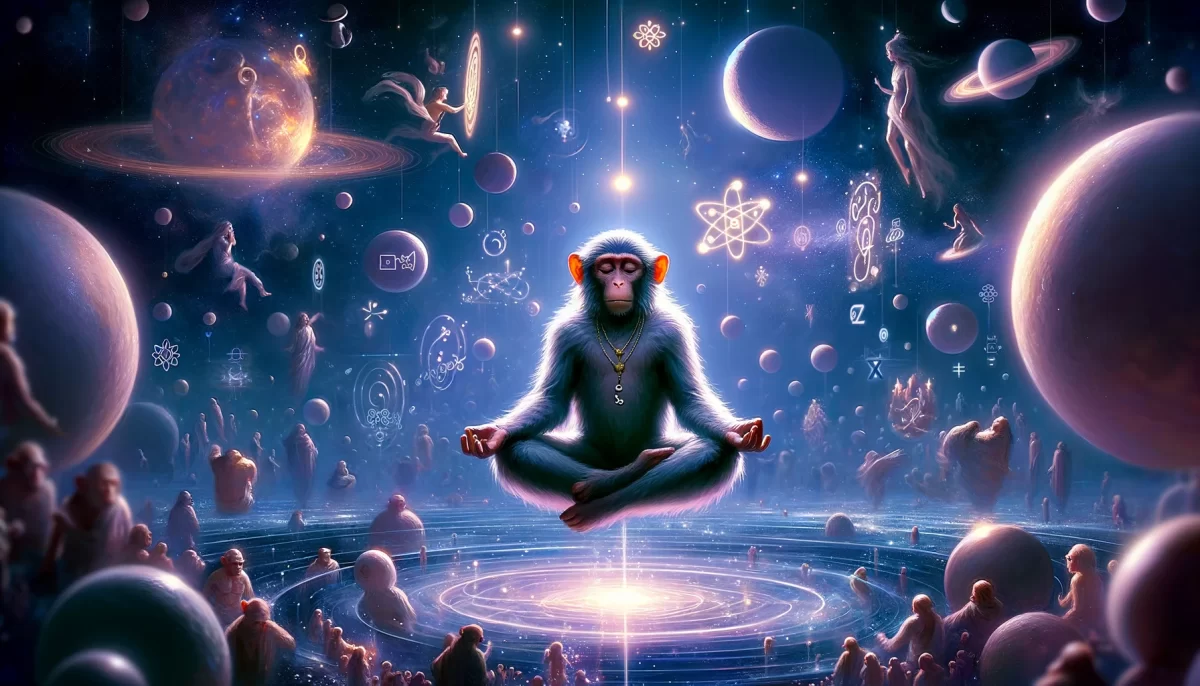
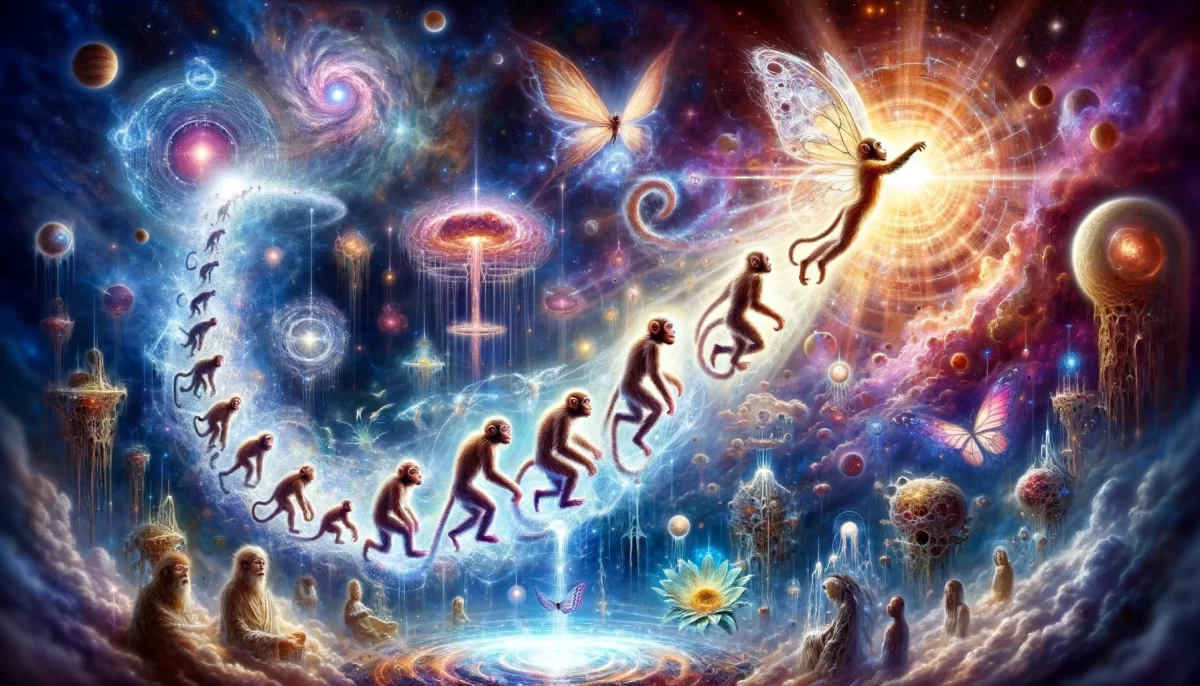
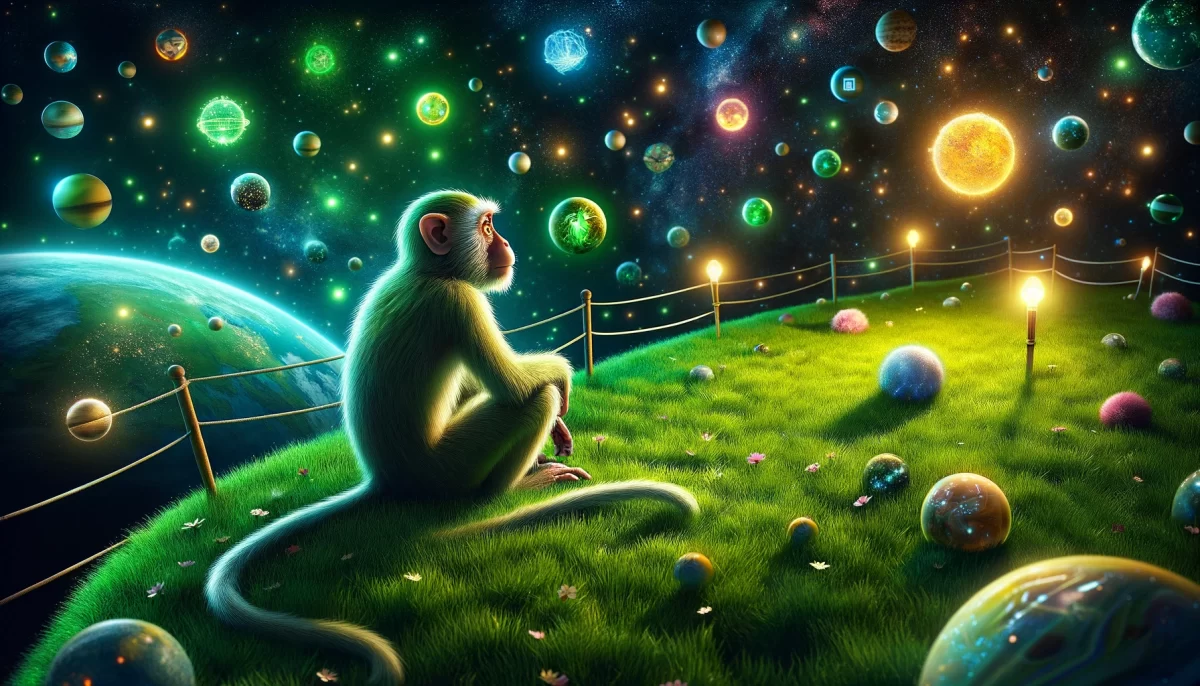
The poem “What’s Eating You?” seems to be reflecting on the fragility and unpredictability of life. The author uses the idea of being eaten as a metaphor for the many ways in which life can unexpectedly end. The first stanza presents this idea in a humorous way, but then the tone becomes more serious as the author mentions other ways in which we could die.
The final lines, “But either way, you’re dead. / Isn’t that funny?” could be interpreted as a commentary on the human condition. Despite our efforts to control our lives and avoid death, it is an inevitable outcome. The author seems to be suggesting that we should accept this fact and find humor in it rather than constantly worrying about it.
Overall, the poem encourages the reader to reflect on the impermanence of life and the importance of living in the present moment.